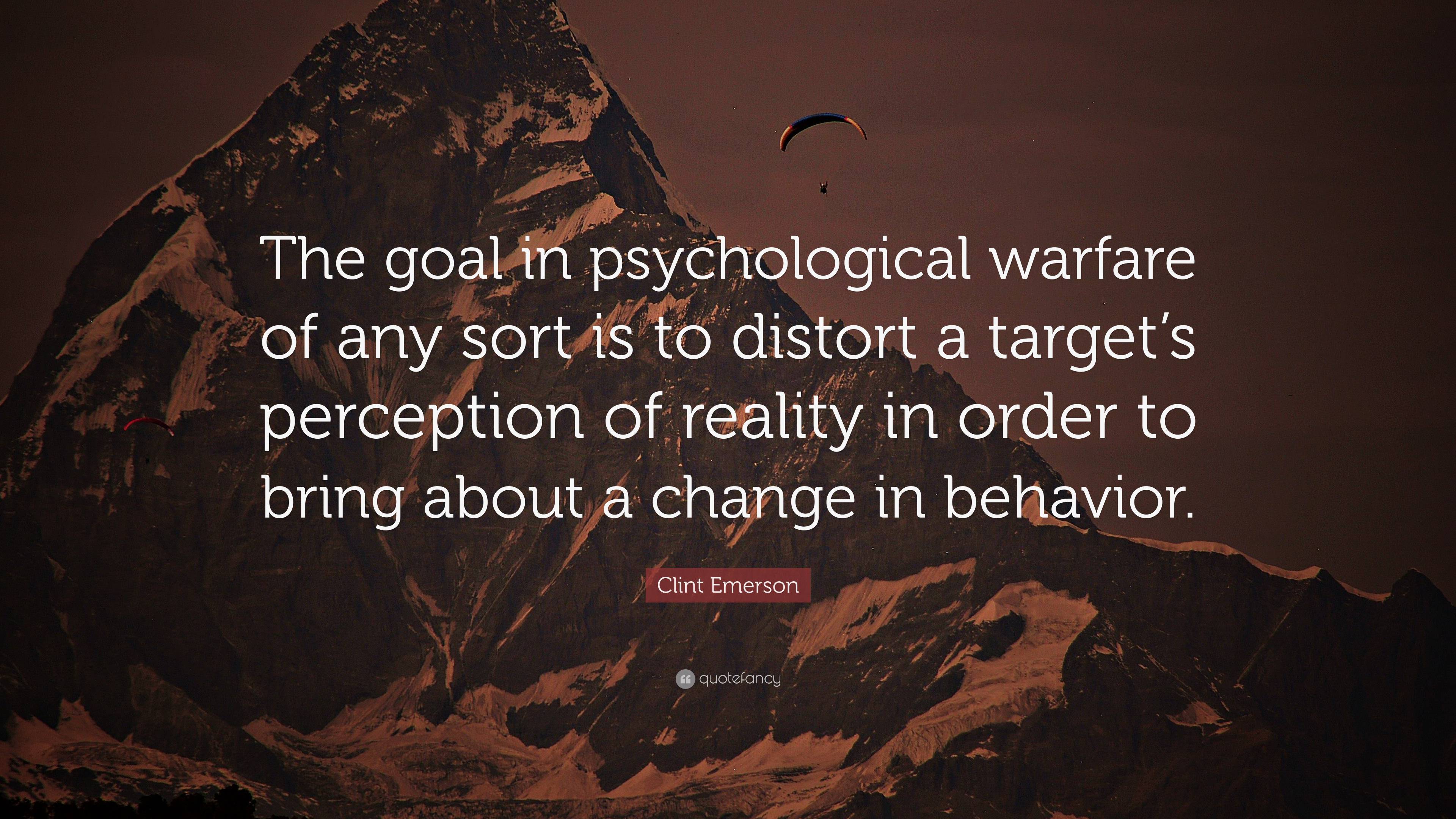Psychological warfare:the use of activities that cause fear and anxiety in the people you want to influence without hurting them physically. (心理战)

How much do you know about “Psychological warfare”, can you provide us with a vivid example to illustrate the application and implementation of “Psychological warfare”?
The term psychological warfare is believed to have migrated from Germany to the United States in 1941. During World War II, the United States Joint Chiefs of Staff defined psychological warfare broadly, stating “Psychological warfare employs any weapon to influence the mind of the enemy. The weapons are psychological only in the effect they produce and not because of the weapons themselves. “The U.S. Department of Defense currently defines psychological warfare as:
心理战这个术语被认为是在1941年由德国过渡到美国的。在二战时期,美国参谋长联席会议对“心理战”有明确定义:
“心理战运用任何可能的武器影响敌对方的心理。这些武器作用于心理层面,取决于它所产出的效果,而不是因为武器本身。”,美国国防部目前将“心理战”定义如下:
“The planned use of propaganda and other psychological actions having the primary purpose of influencing the opinions, emotions, attitudes, and behavior of hostile foreign groups in such a way as to support the achievement of national objectives.”
有计划的运用各种宣传和其它心理层面的行动,其主要的目的是影响敌对国家相关团体的看法、情绪、态度以及行为,以此来支持实现美国国家目标。
This definition indicates that a critical element of the U.S. psychological operations capabilities includes propaganda and by extension counterpropaganda. Joint Publication 3–53 establishes specific policy to use public affairs mediums to counter propaganda from foreign origins.
这个定义表明美国心理战术运作能力的一个关键因素,包括各种宣传以及由此展开的宣传反制。联合出版社3-53建立了特定的方针:利用公共事务媒体来对抗其它国家的宣传。




